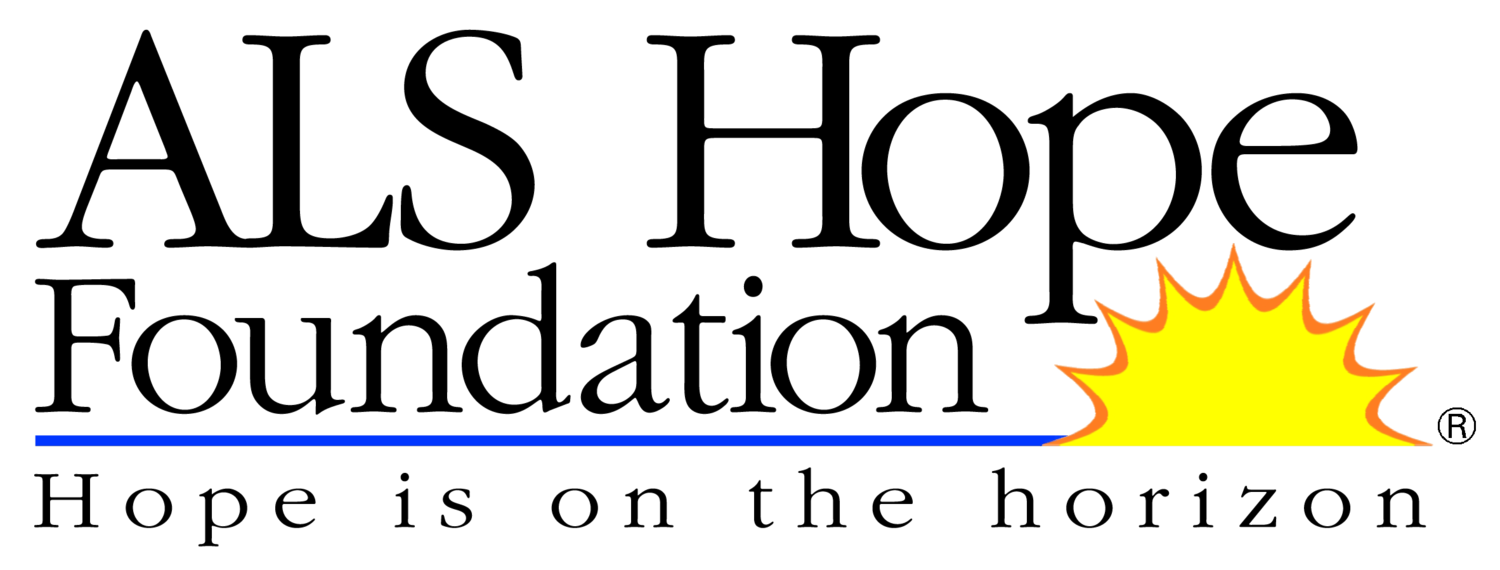ALS Ice Bucket Challenge Returning This August!
/The following is a press release shared by all the organizations in the North American network Collaboration for a Cure. The ALS Hope Foundation is proud to participate in Collaboration for a Cure and to be a part of the effort to bring organizations together in service of our common goal: to make a difference in the lives of people with ALS. We are announcing the Ice Bucket Challenge's return this August - and every August until a cure. Learn more by reading below and visiting www.alsicebucketchallenge.org!
Two ALS patients who co-founded the ALS Ice Bucket Challenge, together with 15 ALS organizations, announced today a collaborative effort to launch the Challenge again this August. The ALS Ice Bucket Challenge became a global phenomenon in 2014 and raised $220 million globally for ALS research and patient care.
Amyotrophic lateral sclerosis (ALS), also known as motor neuron disease (MND), is a progressive neurodegenerative disease that leads to paralysis, due to the death of motor neurons in the spinal cord and brain. There is no known cure for the disease. However, as a result of the ALS Ice Bucket Challenge in 2014 significant new investments in research on the causes of and potential treatments for ALS have been made.
Co-founders Pat Quinn and Pete Frates will kick off this year’s ALS Ice Bucket Challenge on July 31 in Boston. The two ALS patients, their families and a steering committee of nonprofits have been working together since last year and are putting the final touches on a special launch event. A dedicated website – www.alsicebucketchallenge.org – was unveiled today to inform people about ALS and the ALS Ice Bucket Challenge, and to make it easier for them to donate to an ALS organization of their choosing.
“Last year gave the ALS community hope for the first time in a long time,” said Quinn, who lives in Yonkers, N.Y., and was diagnosed with ALS two years ago. “But we still need the public’s help to keep the momentum going. We plan to do the ALS Ice Bucket Challenge again this August and every August until we find a cure.”
The ALS Ice Bucket Challenge is a viral video phenomenon that soaked the nation and the world for the first time in August 2014. A person dumps a bucket of ice and water over his or her head, challenging three friends to either do the same, donate to the ALS charity of their choice, or both. More than 17 million videos of people taking the challenge were posted on Facebook alone last year. These videos were watched by 440 million people a total of 10 billion times.
“The ALS Ice Bucket Challenge represents all that’s great about this country – it’s about fun, friends, family, and it makes a difference to all of us living with ALS,” said Frates, who lives in Beverly, Mass., and was diagnosed with ALS when he was 27 years old. “I am so proud that ALS organizations have come together to support me and my family and the whole ALS community as we unite to launch this year’s ALS Ice Bucket Challenge.”
All told, the ALS Ice Bucket Challenge led to more than $220 million in donations to ALS-oriented nonprofits, including some of those leading this year’s collaborative launch effort. Much of the donations raised by ALS nonprofits during last year’s challenge has already been invested or allocated to support new ALS research efforts, increased advocacy, and expanded and improved local care and services for people diagnosed with ALS, their families, and care providers.
This announcement represents the largest coordinated effort of ALS nonprofits to date, and many of the organizations hope to work more closely together not only on awareness and fundraising activities such as the ALS Ice Bucket Challenge, but also on providing crucial patient services and accelerating ALS research.
The ALSIceBucketChallenge.org website was created pro bono by TBWA\Chiat\Day in New York City.
Participating ALS Organizations: The ALS Association, ALS Canada, ALS Hope Foundation, ALS Therapy Development Institute, ALS Worldwide, Answer ALS, International Alliance of ALS/MND Associations, Iron Horse Foundation, Les Turner Foundation, Muscular Dystrophy Association, Prize4Life, Project A.L.S., Target ALS, Team Gleason, and The Robert Packard Center for ALS Research.
About TBWA\Chiat\Day: TBWA\Chiat\Day New York is part of the TBWA Worldwide network. TBWA Worldwide (www.tbwa.com) is a top ten ranked global advertising network that holds Disruption® at its core to develop business-changing ideas for the brands it works with. TBWA has 11,100 employees across 323 offices in 97 countries and also includes brands such as AUDITOIRE, BEING, Digital Arts Network (DAN), eg+ worldwide, The Integer Group®, TBWA\Media Arts Lab and TBWA\WorldHealth. TBWA’s global clients include Accenture, adidas, Apple, Energizer, Gatorade, GSK, Henkel, Kraft, McDonald’s, Michelin, Nissan, Pernod Ricard, Pfizer, Standard Chartered Bank, Singapore Airlines, Sotheby’s and Vichy. Follow TBWA on Twitter and Instagram and like us on Facebook.














